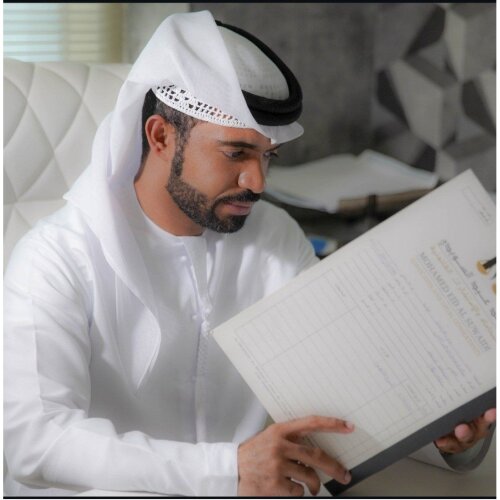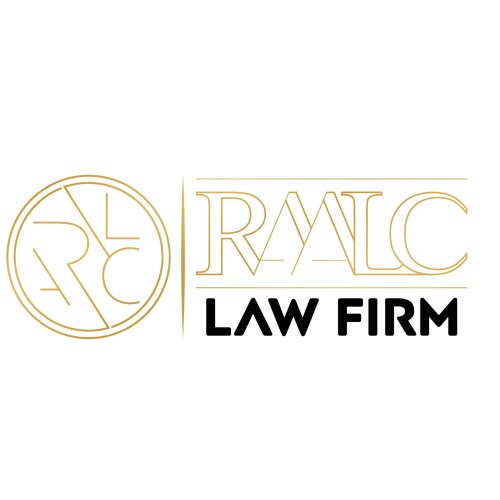Best Real Estate Lawyers in Dubai
Share your needs with us, get contacted by law firms.
Free. Takes 2 min.
Free Guide to Hiring a Real Estate Lawyer
List of the best lawyers in Dubai, United Arab Emirates

Mohamed Eid Al Suwaidi Advocates & Legal Consultants
30 minutes Free ConsultationUnited Arab Emirates Real Estate Legal Questions answered by Lawyers
Browse our 1 legal question about Real Estate in United Arab Emirates and read the lawyer answers, or ask your own questions for free.
- Land Purchase
- Hi, I hope all is well. Just want to consult/clarify below. Our house is built on the land where to our knowledge it is ours (40 years), and lately, someone is telling/claiming that it is theirs which is our relatives also. Lately, they have distributed it to the relatives they... Read more →
-
Lawyer answer by HHS Lawyers And Legal Consultants
If the land has been occupied by your family for decades but there is no title deed and only an old tax declaration in a relative's name, ownership can become legally disputed. A tax declaration alone usually does not prove...
Read full answer
United Arab Emirates Real Estate Legal Articles
Browse our 1 legal article about Real Estate in United Arab Emirates written by expert lawyers.
- Buying Property in the UAE: A Foreigner's Legal Checklist
- Foreigners can own freehold property only in designated areas of each emirate (for example, Dubai freehold zones under Dubai Law No. 7 of 2006); elsewhere you may be limited to leasehold or usufruct rights. Every property transaction must be registered with the relevant land department (Dubai Land Department, Abu Dhabi... Read more →
About Real Estate Law in Dubai, United Arab Emirates
Dubai's real estate sector operates under a robust legal framework designed to promote transparency, protect investors, and regulate the property market effectively. The **Dubai Land Department (DLD)** is the principal government body overseeing real estate activities, including property registration, transactions, and dispute resolution. Established under **Law No. (7) of 2013**, the DLD aims to position Dubai as a leading global real estate destination by implementing international best practices and standards.
The introduction of freehold ownership rights for non-UAE nationals under **Law No. (7) of 2006** has significantly boosted foreign investment in the property market. This law permits expatriates to own property in designated areas, contributing to Dubai's rapid development and cosmopolitan appeal.
Why You May Need a Lawyer
Navigating the complexities of Dubai's real estate laws can be challenging, especially for foreign investors unfamiliar with the local legal landscape. A qualified real estate lawyer can provide invaluable assistance in various aspects:
- Contract Review and Drafting: Ensuring that sales and purchase agreements, lease contracts, and other legal documents are accurately drafted to protect your interests.
- Due Diligence: Verifying property titles, checking for encumbrances, and ensuring compliance with zoning regulations.
- Negotiations: Representing your interests in negotiations with developers, sellers, or landlords.
- Dispute Resolution: Providing legal representation in case of disputes, whether through mediation, arbitration, or litigation.
- Regulatory Compliance: Assisting with adherence to all legal requirements, including registration with the DLD and obtaining necessary approvals.
Engaging a legal professional can mitigate risks, prevent costly mistakes, and streamline the transaction process, providing peace of mind in your real estate dealings.
Local Laws Overview
Dubai's real estate sector is regulated by several key laws and regulations:
- Law No. (7) of 2006: Regulates real property registration in the Emirate of Dubai, allowing non-UAE nationals to own properties in designated areas.
- Law No. (16) of 2007: Specifies areas where non-UAE nationals can own freehold property.
- Law No. (8) of 2007: Establishes the **Real Estate Regulatory Agency (RERA)**, responsible for regulating the real estate sector, including licensing of developers and brokers.
- Law No. (26) of 2007: Governs the relationship between landlords and tenants, outlining rights and obligations, rent increases, and eviction procedures.
- Law No. (27) of 2007: Pertains to jointly owned properties (strata law), regulating ownership and management of common areas in multi-unit developments.
- Decree No. (26) of 2013: Establishes the **Rental Disputes Center** as the judicial arm for resolving rental disputes efficiently.
- Law No. (13) of 2008: Regulates the interim property register in Dubai, requiring all off-plan sales to be registered to protect investors.
- Law No. (9) of 2009: Amends previous laws to enhance investor protections and regulate developer obligations.
These laws collectively ensure that the real estate market operates fairly, transparently, and sustainably, providing a secure environment for investment and residency.
Frequently Asked Questions
1. Can non-UAE nationals own property in Dubai?
Yes, under Law No. (7) of 2006 and Law No. (16) of 2007, non-UAE nationals can own freehold properties in designated areas known as freehold zones. These areas are specified by the Ruler of Dubai and include popular locations like Dubai Marina, Downtown Dubai, and Palm Jumeirah.
2. What is the role of the Dubai Land Department?
The Dubai Land Department (DLD) is the government entity responsible for regulating and registering real estate transactions, implementing policies, and promoting investment in the property sector. The DLD ensures legal compliance, oversees property registrations, and provides services related to property valuation, escrow management, and dispute resolution. Official website: dubailand.gov.ae.
3. What are the standard terms of a rental agreement?
Rental agreements in Dubai are typically for a term of one year but can vary based on mutual agreement. The contract should be registered with the **Ejari** system, an initiative by RERA to regulate and facilitate the rental market. The agreement outlines the rent amount, payment terms, maintenance responsibilities, and other conditions as per Law No. (26) of 2007 and its amendments.
4. How are rental disputes resolved?
Rental disputes are resolved by the Rental Disputes Center (RDC), established under Decree No. (26) of 2013. The RDC provides a judicial system specialized in rental conflicts, aiming for efficient and transparent resolutions. Parties can file complaints online or in person. More information is available at rdc.dubailand.gov.ae.
5. Are there property taxes in Dubai?
Dubai does not impose property taxes. However, there are fees associated with property transactions and ownership:
- Transfer Fee: A one-time fee of 4% of the property value payable to the DLD upon sale.
- Registration Fee: Fees for registering the property with the DLD.
- Housing Fee: An annual fee for residents, calculated at 5% of the annual rent for tenants or 0.5% of the property value for owners, collected through DEWA bills.
- Service Charges: Annual fees for maintenance and upkeep of common areas in properties like apartments and villas in communities.
6. What is Ejari, and why is it important?
Ejari is an online registration system initiated by RERA to regulate and facilitate Dubai's rental market. It requires all rental and lease contracts to be registered, creating a transparent database of tenancy agreements. Registering with Ejari is mandatory and is often required for various services, such as setting up utilities or sponsoring family members. More information is available at ejari.dubailand.gov.ae.
7. Can property ownership in Dubai lead to residency?
Yes, property ownership can qualify investors for certain residency visas:
- Property Investor Visa: Available for property owners with a minimum investment of AED 1 million. Valid for two years and renewable.
- Retirement Visa: Residents aged 55 and above can obtain a retirement visa by investing in property worth at least AED 2 million.
- Golden Visa: Long-term residency visas (5 or 10 years) for investors who meet specific criteria, including property investments starting from AED 5 million without a mortgage.
Visa regulations are subject to change, and it's advisable to consult official sources or legal professionals for the most current information.
8. What protections are in place for off-plan property buyers?
Law No. (8) of 2007 and subsequent regulations provide protections for off-plan property buyers, including:
- Developers must be registered with RERA.
- Funds collected from buyers must be deposited into escrow accounts regulated by RERA.
- Developers are required to meet certain construction milestones before accessing escrow funds.
These measures aim to protect investors from project delays or cancellations.
9. How does the strata law affect property owners?
Law No. (27) of 2007 (Jointly Owned Property Law) regulates ownership and management of common areas in multi-unit developments. It establishes owners' associations responsible for managing, operating, and maintaining common areas. Property owners are members of these associations and are required to pay service charges for upkeep.
10. What are the consequences of not registering a property transaction with the DLD?
Failure to register a property transaction with the DLD means the transaction is not legally recognized, which can lead to several issues:
- The buyer may not have legal ownership rights.
- Difficulty in enforcing contractual rights or resolving disputes.
- Potential fines or legal penalties for non-compliance.
It's crucial to ensure all property transactions are properly registered to protect your legal rights.
Additional Resources
For authoritative information and services related to real estate in Dubai, refer to these official sources:
- Dubai Land Department (DLD): dubailand.gov.ae
- Real Estate Regulatory Agency (RERA): dubailand.gov.ae/en/about-us/real-estate-regulatory-agency/
- Rental Disputes Center (RDC): rdc.dubailand.gov.ae
- Ejari Registration System: ejari.dubailand.gov.ae
- Dubai Courts: dc.gov.ae
- Government of Dubai Legal Affairs Department: legal.dubai.gov.ae
These platforms provide access to legal texts, guidelines, services, and updates pertinent to real estate laws and regulations in Dubai.
Next Steps
If you require legal assistance with real estate matters in Dubai, consider taking the following steps:
- Consult a Licensed Lawyer: Engage a legal professional specialized in UAE property law. A directory of licensed lawyers is available on the Dubai Courts website: dc.gov.ae/PublicServices/Lawyer.
- Attend Workshops and Seminars: The DLD and RERA frequently conduct educational programs to keep investors and residents informed about the latest developments. Check their websites for upcoming events.
- Stay Informed: Regularly visit official websites and subscribe to newsletters to stay updated on changes in laws and regulations.
- Due Diligence: Always perform thorough checks on properties, developers, and agents before engaging in transactions.
Proactive engagement and informed decision-making are key to successful real estate investments and transactions in Dubai.
Lawzana helps you find the best lawyers and law firms in Dubai through a curated and pre-screened list of qualified legal professionals. Our platform offers rankings and detailed profiles of attorneys and law firms, allowing you to compare based on practice areas, including Real Estate, experience, and client feedback.
Each profile includes a description of the firm's areas of practice, client reviews, team members and partners, year of establishment, spoken languages, office locations, contact information, social media presence, and any published articles or resources. Most firms on our platform speak English and are experienced in both local and international legal matters.
Get a quote from top-rated law firms in Dubai, United Arab Emirates — quickly, securely, and without unnecessary hassle.
Disclaimer:
The information provided on this page is for general informational purposes only and does not constitute legal advice. While we strive to ensure the accuracy and relevance of the content, legal information may change over time, and interpretations of the law can vary. You should always consult with a qualified legal professional for advice specific to your situation.
We disclaim all liability for actions taken or not taken based on the content of this page. If you believe any information is incorrect or outdated, please contact us, and we will review and update it where appropriate.
Browse real estate law firms by service in Dubai, United Arab Emirates
Dubai, United Arab Emirates Attorneys in related practice areas.
















